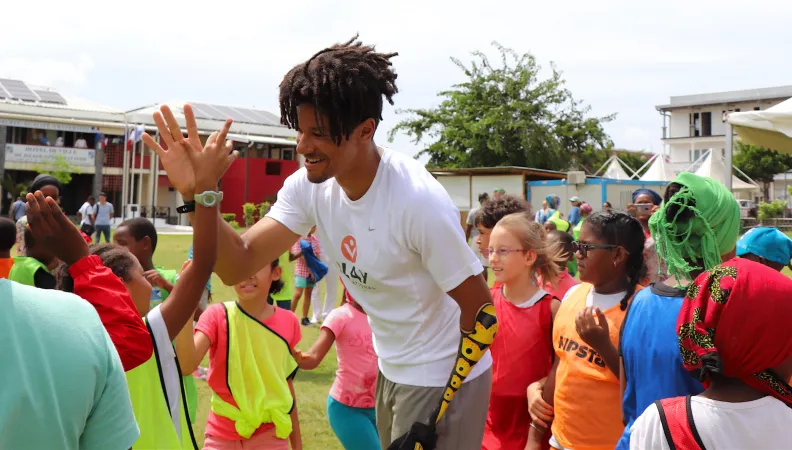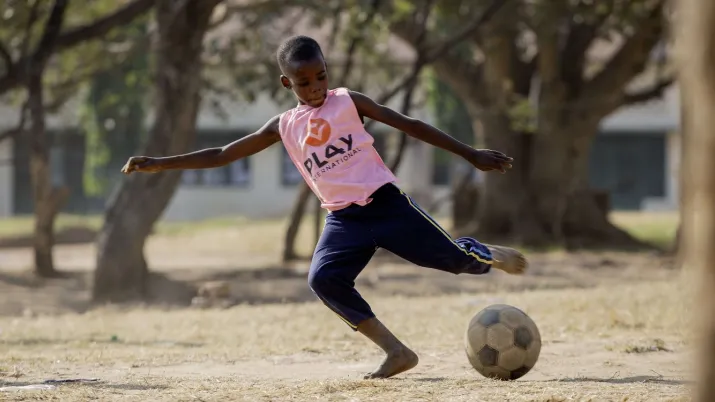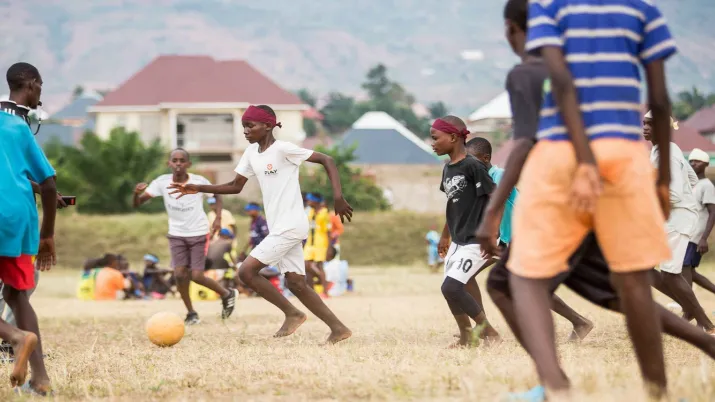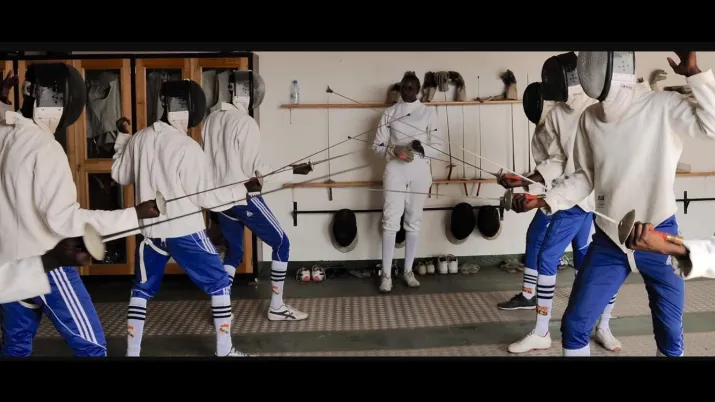Share the page
Beyond the Olympics: Vanquishing Inequality through Sports
Published on

Arnaud Assoumani, a Paralympian who will be competing in the Paris 2024 Olympic and Paralympic Games, is at the starting blocks. The long jump and triple jump athlete from the French overseas territory of Mayotte is also a longtime companion of youth programs supported by AFD. On the eve of the Olympic Games, he shares his experience from both on and off the field.
In the lead-up to the Paris 2024 Olympic and Paralympic Games, sport is being hailed as a driver of sustainable development. How can it make a difference to people’s daily lives?
Arnaud Assoumani: Whether competing as a group or individually, sport is above all about enjoyment. It takes us out of our everyday lives, and can be especially helpful for those facing hardship in their day-to-day life.
Sport is a highly effective vehicle for education, discipline, inclusion, and gender equality. It also highlights fundamental values such as solidarity, helping others and equality. So sport can be a powerful tool, as is the case with Play International.
You’ve been involved with Play International for several years now. How have young people benefited?
I’d say the Play International teaching approach combines sport and civic education. For example, when I was in Mayotte with AFD, I took part in several workshops where we devised games based around cooperation rather than competition. Winning at the expense of others was not an option: either everyone wins, or everyone loses. We worked on gender equality, with a made-up game similar to the 10-pass catch game.
However, we adapted the rules to help these young people better understand injustice: first, the girls were not allowed to pass the ball to other girls, then they were not allowed to score, and then not allowed to speak.
Then we reversed the roles and did the same with the boys. Afterwards, we had a discussion and provided some historical background on women’s emancipation, in order to challenge these youngsters’ habitual behaviors. Do boys help with household chores? Are girls allowed to go out like their little brothers? Do they have the same freedoms? Obviously, it’s going to take a long time to challenge such deeply rooted ideas but it’s a powerful approach, you quickly see that!
See also: Mayotte, Challenging Stereotypes through Sport
The 2024 Summer Olympics are about to begin. How are you feeling?
I’m preparing for the Paralympics and I’ve not been in such good shape for ten years. It’s going to be incredible! I feel proud and relaxed because I’ve already been selected for what will be my sixth Games, and, throughout my entire career, I’ve never been selected so early.
I’ll be competing in front of my whole family, people who haven’t seen each other for fifteen years, and lots of my friends. There’s a major public health issue at stake when representing your country and pushing yourself to the limits, even if as athletes, we don’t always win a medal.
See also: Sports as a Driver of Development and Peace
What positive effects will the legacy of the 2024 Summer Olympics leave for posterity?
For the first time in history, the Organizing Committee for the Olympic and Paralympic Games is working on the legacy left by the Games. For me, a powerful aspect of this legacy is how it will change the way people look at disability and difference, with these Paralympic Games serving as the catalyst.
A 2024 Impact and Legacy Endowment Fund has been set up. It will be used to provide training for over 3,000 clubs in France on welcoming people with a range of disabilities.
The Learn to Swim program is another example, which will target young people in rural areas and priority neighborhoods. The Fund will also be used to promote gender equality in the governance of clubs and federations. I can think of other examples such as the Impact 2024 and Ticket for Change programs, supported by AFD, which will help leaders of projects with a social and societal impact.
Further reading
With just months to go to the Paris Olympics, we chart AFD’s work in Sports & Development
Published on February 9, 2024
Sport Impact Summit: Striving for Excellence with Sports and Development
Published on October 31, 2023



